If we foster trust and frequent social interactions with our neighbors, they have the potential to improve our levels of happiness, life satisfaction, and overall well-being. However, harmony and friendships among fellow residents are rare due to differing opinions and incompatible personalities, making us build fences and distance ourselves from each other as much as possible.
This Redditor user also plans on doing exactly that after their ‘Boomer’ neighbors crossed many boundaries, both physical and mental. Constantly snooping around, invading their yard, and complaining about what they do with their property are just a few things the couple had to endure from these elder residents. Having enough of it, they hired a land survey that finally showed them their place.
Nowadays, harmony and friendships are rare among neighbours

Image credits: Greta Hoffman / pexels (not the actual photo)
This couple tried being friendly but completely backtracked after their neighbors crossed way too many boundaries
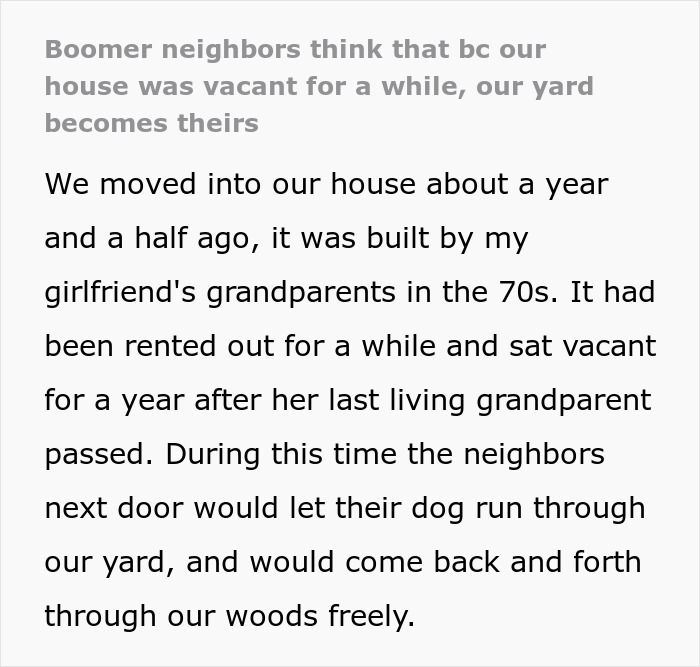
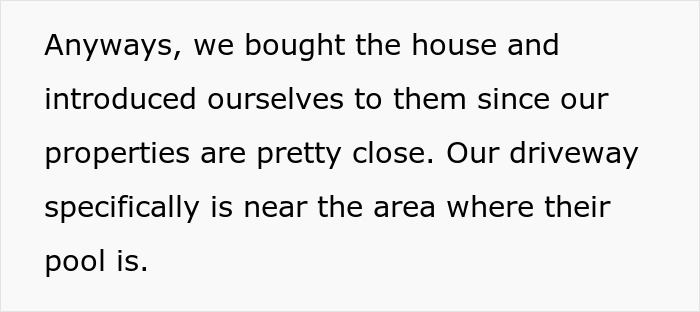


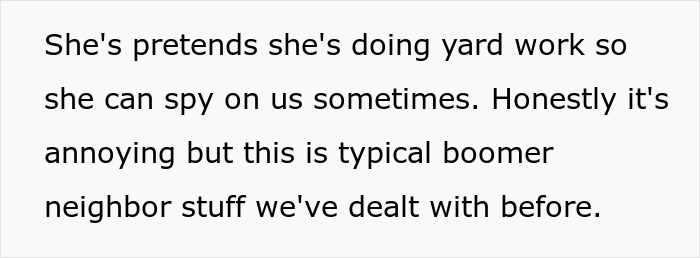
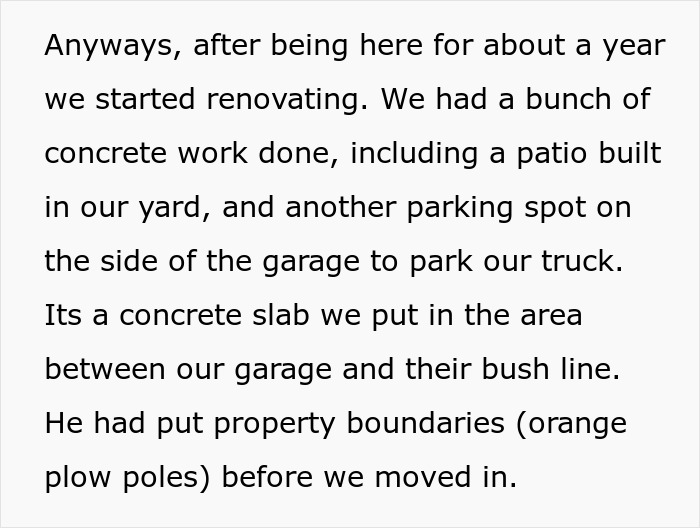
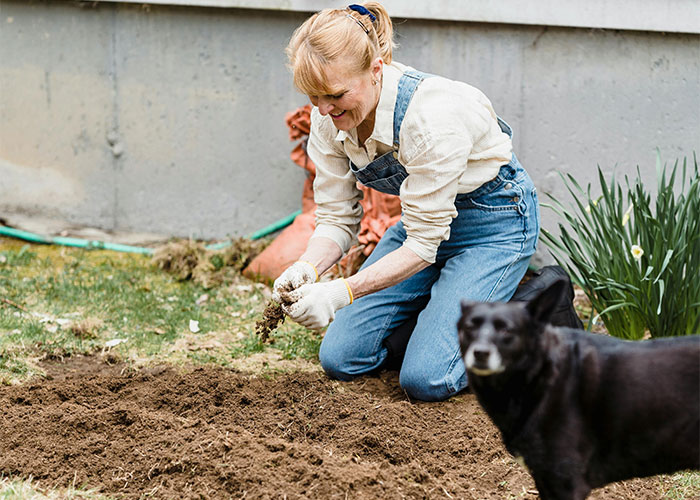
Image credits: Greta Hoffman / pexels (not the actual photo)


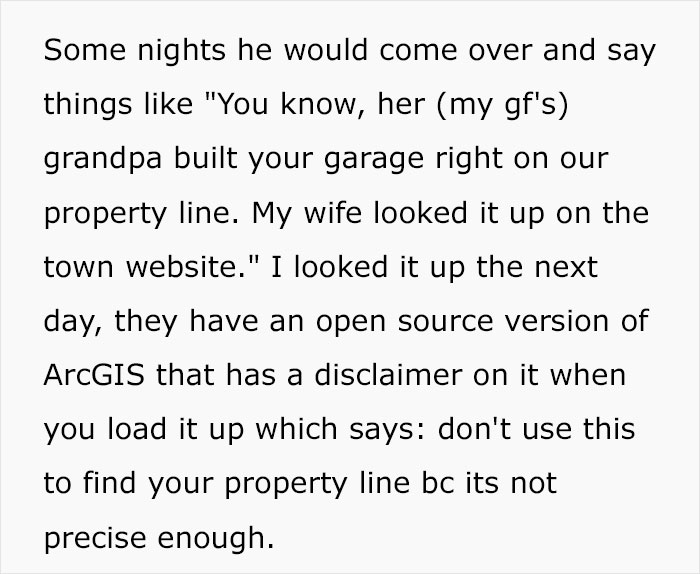
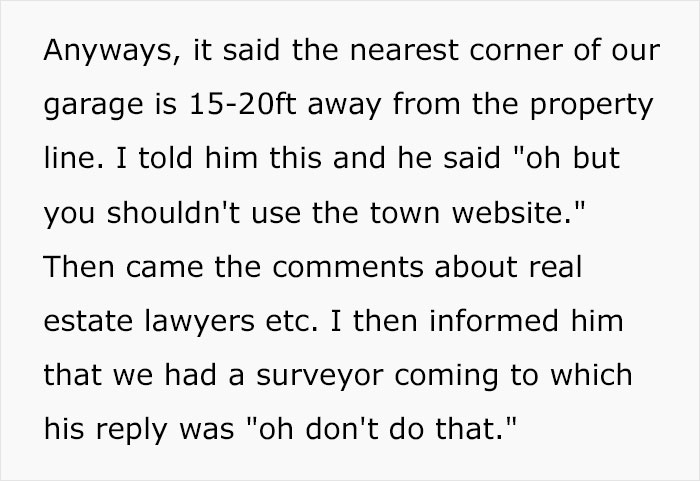


Image credits: Curtis Adams / pexels (not the actual photo)


The author also posted an update

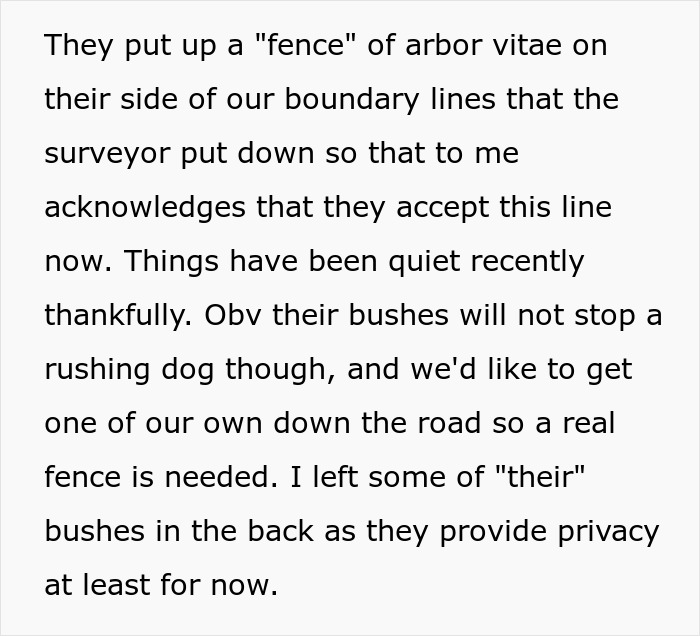
Image credits: _R3tr0grade_
73% of Americans say they aren’t happy with their neighbors
Around 73% of Americans say they aren’t happy with their neighbors. Mostly due to “weird vibes,” noise, and rude behavior. In fact, this dislike goes deeper than an occasional eye roll that follows after upstairs dwellers stomp their feet too loud, as 23% have called police on their fellow residents and one in ten had to move because of them.
Each generation has their own preferences when it comes to what neighborly behaviors they disapprove of. Gen Z says they can’t stand the smell of cigarette smokers, while millenials experience the most issues with nearby dwellers’ pets. Baby boomers disapprove of neighbors’ messy yards and Gen X isn’t happy with a lack of politeness.
“In today’s hot housing market where prices are high and inventory is limited, the unfortunate reality is that some people might not have any other choice but to live near someone they don’t like,” says Jacob Channel, LendingTree’s senior economist. “And while getting ‘bad vibes’ from a neighbor can certainly be annoying, dealing with them might be worth it if it means you have an affordable place to live.”
However, relationships between neighbors weren’t always as opposing as they seem nowadays, and people have lots of opinions about how we come to this. “I’ve heard the blame placed on things like fenced yards, homes without front porches, too much indoor entertainment, electric garage doors, and even air-conditioning,” said David Burton, a community development specialist. “But those are all external sources of blame, while the actual responsibility rests with each of us and our choices.”

Image credits: cottonbro studio / pexels (not the actual photo)
65% of Americans hide from their neighbors
Indeed, data supports Burton’s claims, revealing that 65% of Americans hide from their neighbors, making fellow residents not as connected as they used to be. Most dwellers choose solidarity because they enjoy their privacy, with 79% saying that it’s a concern of theirs.
However, the disconnect from neighbors can pose concerns for safety and lead to mental health disorders like depression. In addition, the lack of amicable relations with fellow residents can result in increased neighborly conflicts.
So the answer to solving disputes between neighbors seems obvious enough—interaction. “Be intentional about being outside. Watch and speak to neighbors that you see. And take steps to learn and use the names of your neighbors. That is the starting line so get on your mark,” said Burton.
Meanwhile, Top Rail Fence president Todd Bingham suggests creating and maintaining shared spaces like parks, community gardens and recreational areas that foster interactions between neighbors.
“Active homeowner associations (HOAs) or neighborhood groups can also play a role in fostering community engagement. Using online neighborhood community apps or social media groups can keep residents connected and informed about local events and issues, promoting a sense of community even in the digital realm,” he adds.

Image credits: Марина Вотинцева / pexels (not the actual photo)
The author also provided more information in the comments

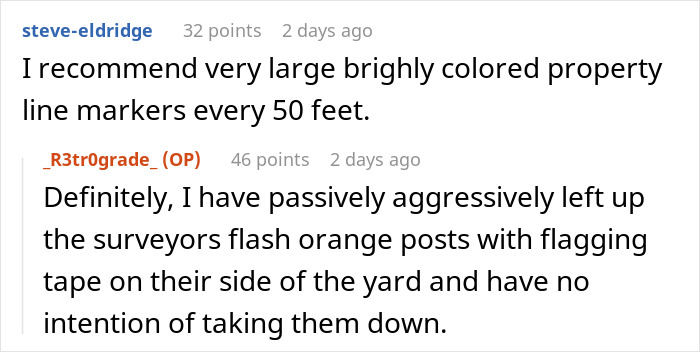



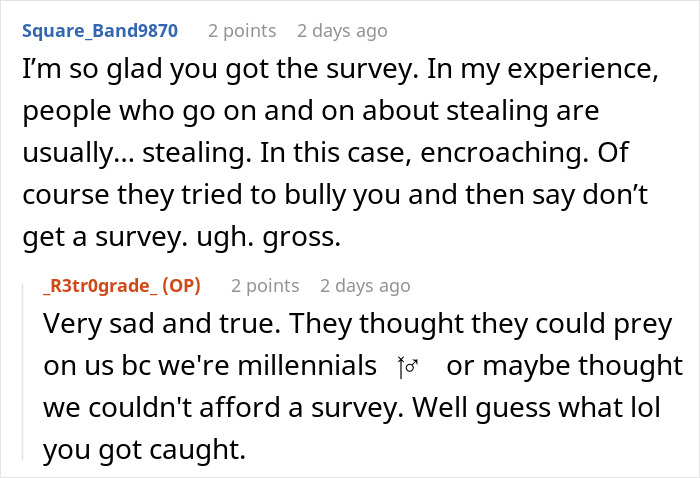
Readers supported the couple and offered some advice
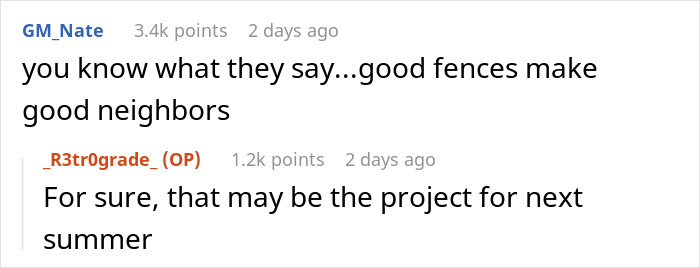


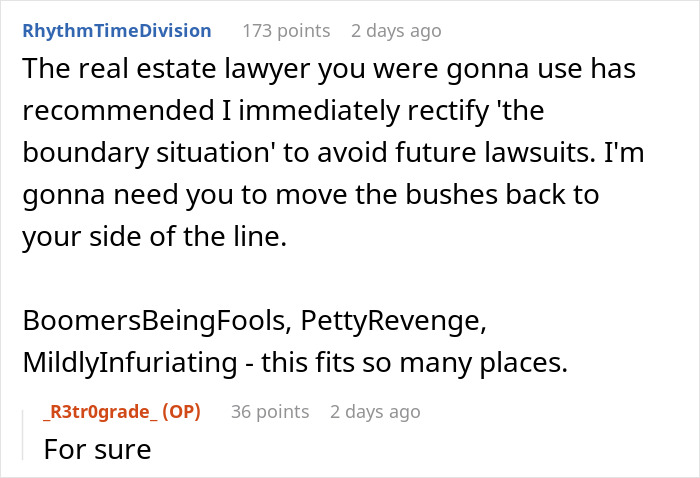


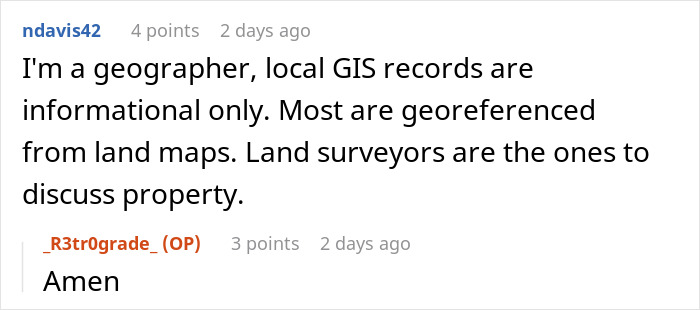


Some even shared similar stories
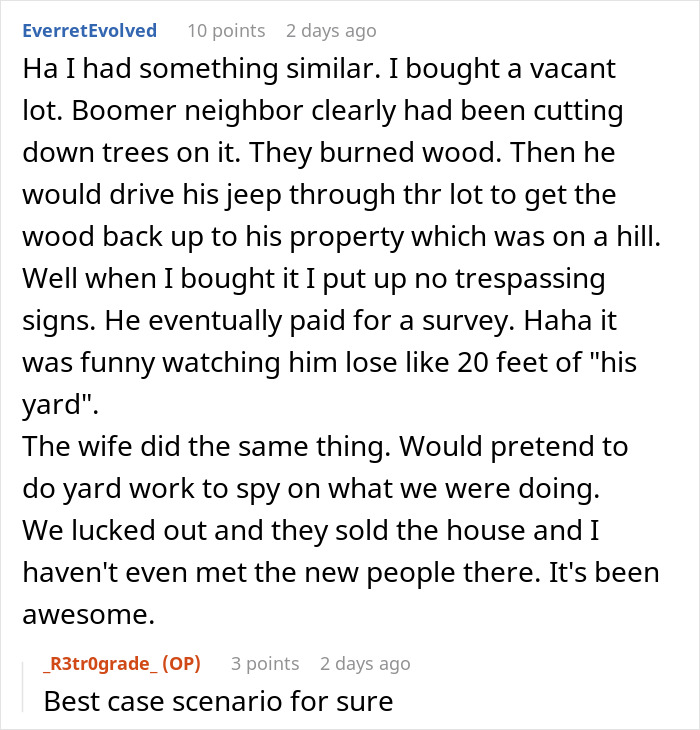
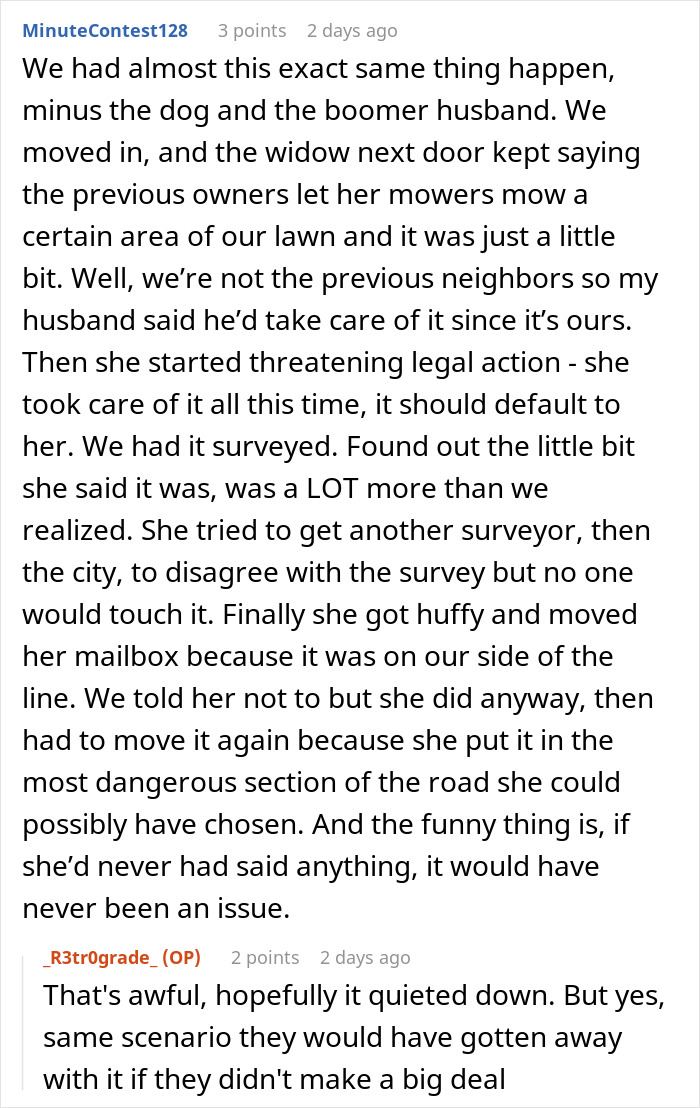
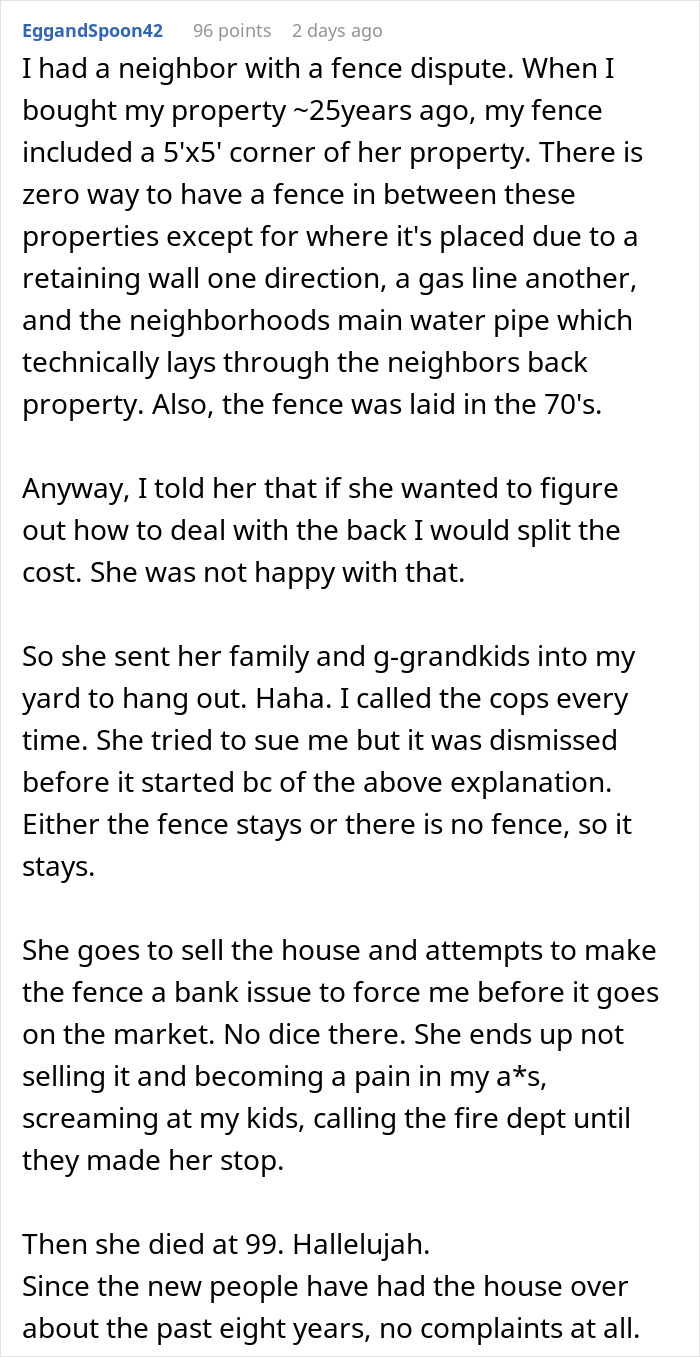
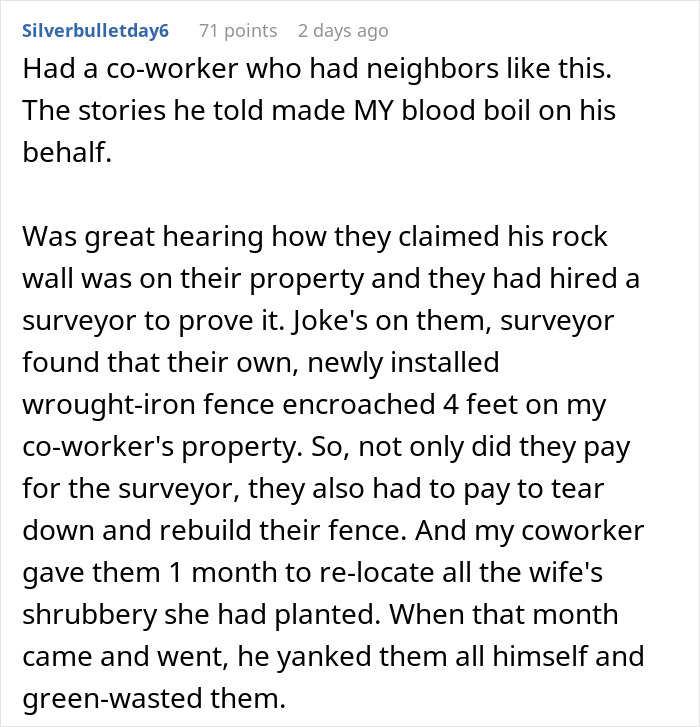












 English (US) ·
English (US) ·